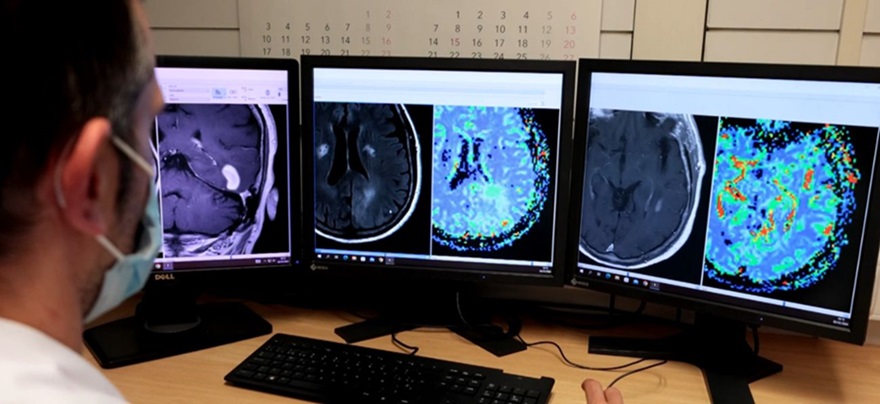AI-Based MRI Tool Outperforms Current Brain Tumor Diagnosis Methods
Posted on 13 Mar 2024
Glioblastoma multiforme, metastases from solid tumors to the brain, and primary central nervous system lymphoma comprise up to 70% of all malignant brain cancers. Differentiating among these malignancies is crucial because each type demands a specific treatment strategy, but presents a clinical challenge. Currently, the non-invasive diagnosis of brain tumors relies on magnetic resonance imaging (MRI) analysis before and after the administration of contrast agents. However, a conclusive diagnosis often requires neurosurgical procedures, which can negatively impact the patient's quality of life. Now, a deep learning tool leverages magnetic resonance imaging (MRI) data to accurately classify brain tumors, thereby supporting clinicians in making informed decisions.
The Diagnosis in Susceptibility Contrast Enhancing Regions for Neuroncology (DISCERN) is an open access, deep learning tool developed jointly by investigators from the Vall d’Hebron Institute of Oncology (VHIO, Barcelona, Spain) and Bellvitge University Hospital (Barcelona, Spain). It is based on the training of patterns using artificial intelligence (AI) models extracted from standard MRI information. DISCERN interprets the comprehensive spatial and temporal data available from conventional MRI scans to recognize tumor-specific patterns.

By employing deep learning, the system learns to distinguish between the characteristics of various tumors based on MRI scans from previously diagnosed patients. A study led by VHIO demonstrated DISCERN's capability to facilitate the accurate diagnosis of brain tumors using perfusion MRI, surpassing the accuracy of traditional diagnostic methods. With an accuracy rate of 78% in classifying these common brain cancers, DISCERN represents a significant advancement in the field. The developers have made DISCERN accessible through an easy-to-use, open-source application to promote its widespread use in clinical research and enhance the reproducibility of findings.
“DISCERN is a computerized diagnostic support tool that facilitates the classification of brain tumors to help guide medical decision making by multidisciplinary teams regarding the need for and type of surgery required to confirm diagnosis,” said Carles Majós, clinical neuroradiologist and investigator at the Bellvitge University Hospital.
Related Links:
VHIO
Bellvitge University Hospital














